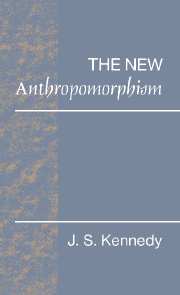Chapter 2
Published online by Cambridge University Press: 29 January 2010
Summary
Anthropomorphism and teleology
Anthropomorphism in the context of animal behaviour means “the ascription of human mental experiences to animals” (Asquith 1984, p. 138). We are familiar with three kinds of mental (= subjective, conscious) experience: feelings — pleasure, pain, the various emotions and sensations (sense-impressions), motivations — the goals and purposes of our actions, and thought more or less independent of motor action. We are directly aware of these things only in ourselves, through introspection. This means that simply taking it for granted that animals feel and think too, or explaining a piece of animal behaviour “by merely pointing to the goal, end or purpose” of it (as Tinbergen (1951) complained) are by definition examples of unwarranted anthropomorphism — effectively a throw-back to primitive animism.
There is an important source of confusion here that must be cleared away immediately. It is in the pejorative sense of Asquith's definition above that I shall be using the word anthropomorphism throughout this book. Sometimes, however, the word is used to mean merely pretending for argument's sake that an animal can think or feel as we do. That pretence, the so-called ‘intentional stance’ which I shall call ‘mock anthropomorphism’, can be very valuable for the hypotheses it generates about the functions of the animal's behaviour, as described in 5.1 on ‘Intentionality’.
- Type
- Chapter
- Information
- The New Anthropomorphism , pp. 9 - 32Publisher: Cambridge University PressPrint publication year: 1992
- 1
- Cited by



